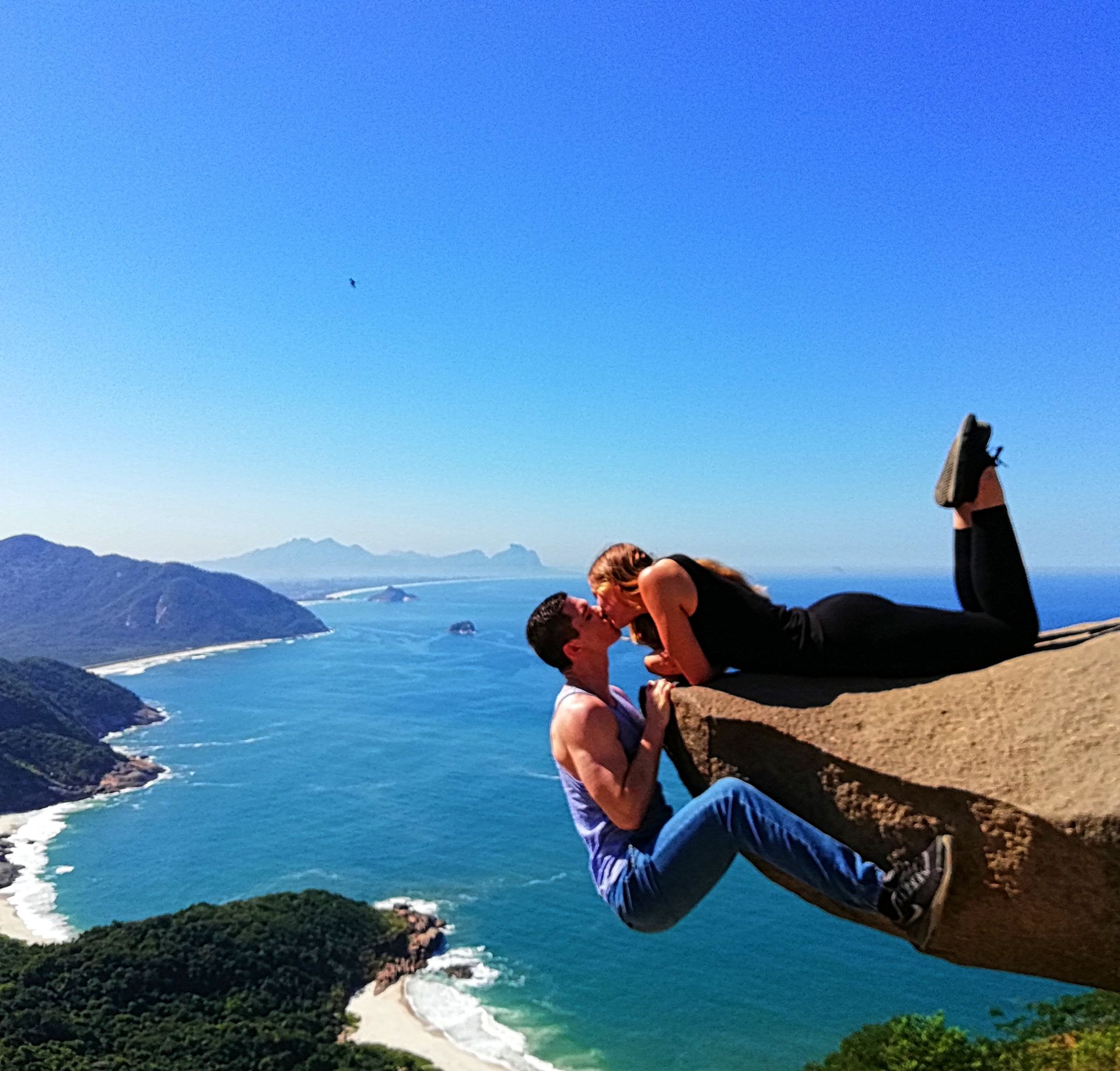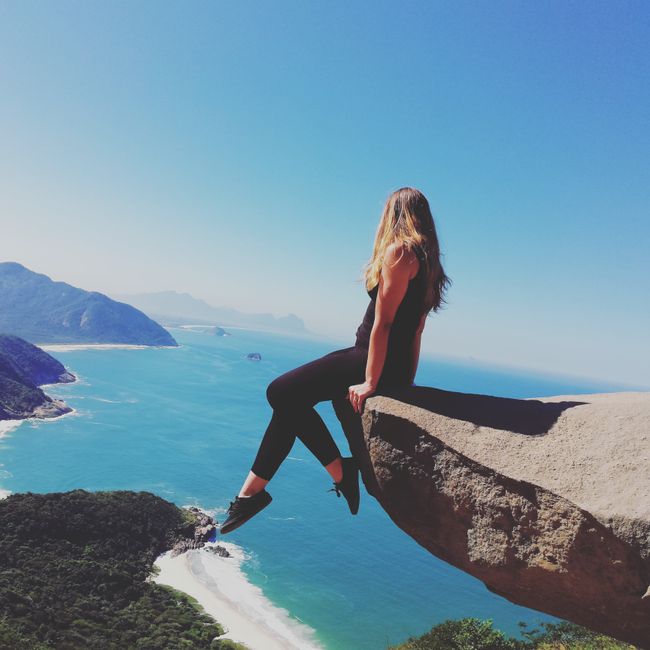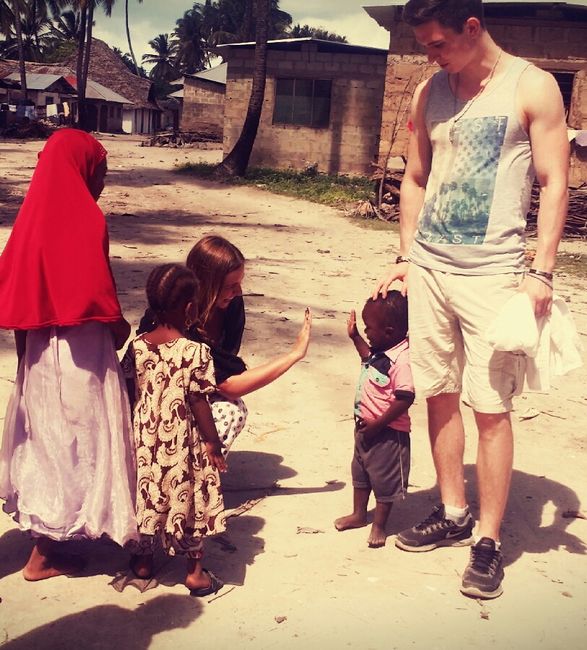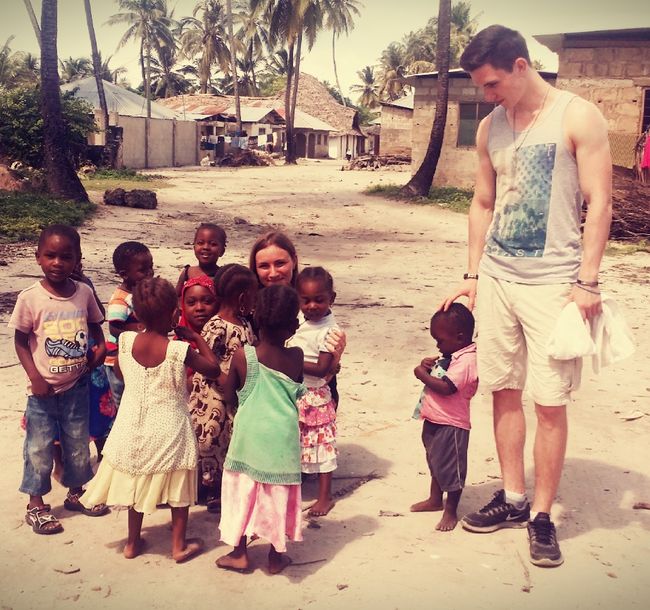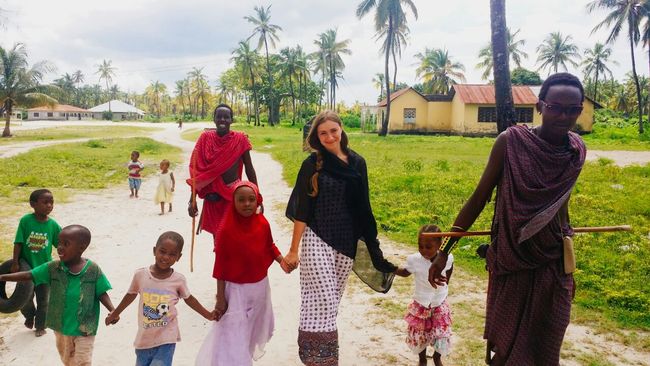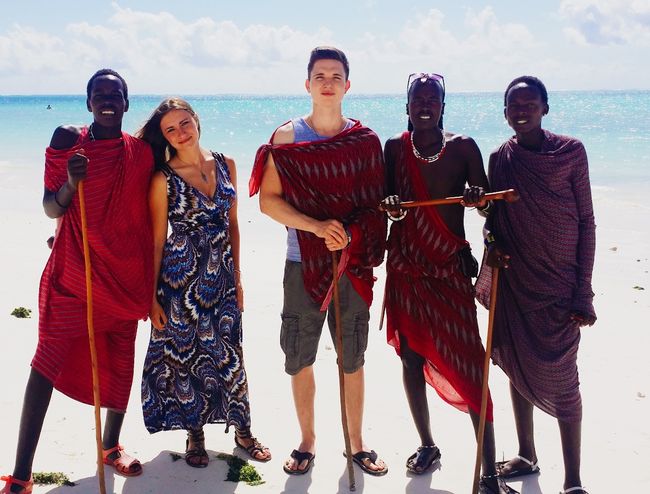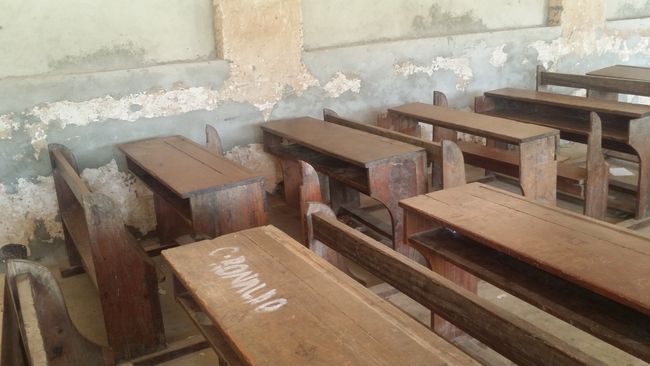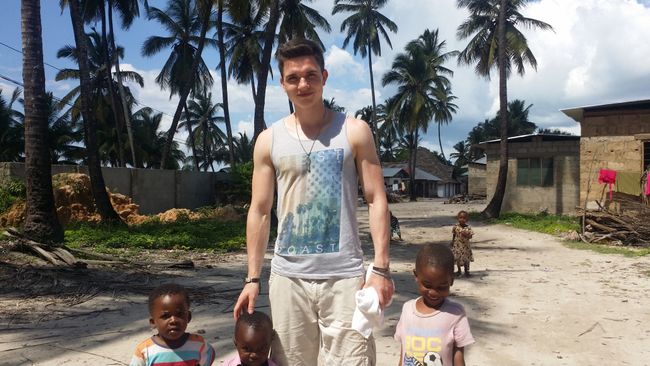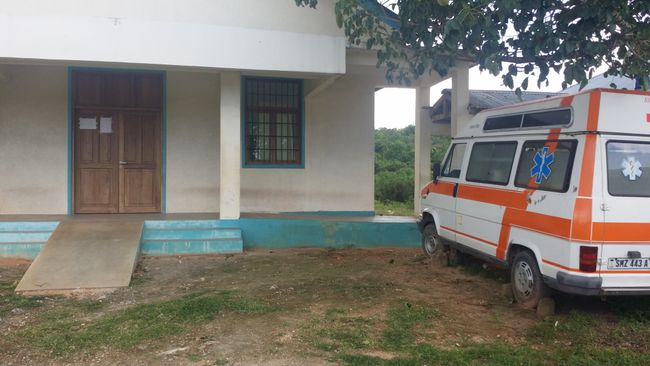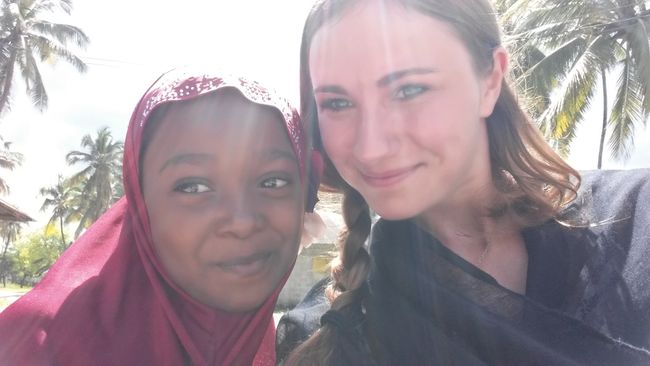Zanzibar 2 - in the village of the Maasai
已发表: 18.12.2018
订阅时事通讯
Content

The following memory is one of our favorites.
There are many Zanzibaris on the powdered sugar beaches of Zanzibar who want to sell you all sorts of things. Excursions, bracelets, massages, necklaces, colorful scarves, works of art... And they are quite pushy about it. As soon as you leave the hotel beach, you're approached, which can be damn annoying.
Our memory started with Jonas (at least he introduced himself to us under that name), the young man on the far left. He, like everyone else, approached us and asked if we would come to his stand to buy something.
'Yes, but not today.'
I was not in the mood to talk to all the people who wanted to sell us their stuff. I just wanted to walk along the beach in peace.
However, Jannik suddenly became enthusiastic. He started talking to Jonas (more or less). They communicated more with gestures than with words, but somehow they seemed to be on the same wavelength.
I was uncertain. While Jannik had been having some sort of communication for twenty minutes, I watched the whole thing a bit critically. I didn't understand why Jannik was giving him hope - after all, we didn't want to buy anything.
But I also didn't understand that the two of them seemed to have gone far beyond a sales conversation.
Jonas told us he was a Maasai. During the high season, he would come here to Zanzibar to earn some money, otherwise he and his family would be in their homeland, among all the other Maasais. We talked with him for over an hour on the first evening, and it wouldn't be the last conversation.
Jonas was at the beach almost every day. He came when the sun rose and didn't leave until it got dark.
Jonas soon introduced us to his relatives: 'Longhair' and 'Michael Jackson'. Also Maasai who hung around the beach and wanted to sell their goods.
'What do you buy with the money you earn here?', Jannik asked. 'A cow.' Jonas replied, beaming. 'A cow?' Longhair and Michael Jackson grinned and nodded.
'Yes, if the money is enough.'
'Why? Do you eat the cow? '
'No. Because of its blood. If you drink it, you will become strong.'
I couldn't help but give a puzzled look. Jannik laughed and looked over at me.
Other countries, other customs. By the way, they didn't kill the cows, they just regularly drank from them.
I still don't quite understand to what extent the three of them were related. But I do remember that Michael Jackson already had children and somehow seemed to be Jonas' uncle, while the other two expressed their desire to start a family soon. Jonas was the youngest, and he repeatedly told us enthusiastically about his visions for the future. All three of them were incredibly open, cheerful, and interested. They could have recruited other people in the time they chatted with us. But they preferred to talk to us about everything under the sun (as best they could).
One evening, we sat together on the beach and translated different sentences and terms from German and English to Swahili and vice versa. We wrote down all the sentences they could use and let them teach us a bit of their language.
But the most important thing for them, like for all Zanzibaris, was a well-known 'proverb' :
'HAKUNA MATATA.'

After a while, the guys started telling us about their village. They kept assuring us that they wanted to show us how they lived here.
And eventually we came back to their offer. We agreed to meet after lunch and they would ultimately take us to their village.
After about twenty minutes, we reached the small village.

We didn't stay undiscovered for long. From the small houses, some of which you can see in the pictures, more and more children streamed out.
At first, they hid and shyly smiled at us when we looked at them. But after a few minutes, we were surrounded by children who absolutely wanted to hold our hand and cuddle with us.
The little ones smiled at us and seemed incredibly happy just at our presence. It was simply amazing. They wrapped their arms around us and didn't want to let go.
I have rarely seen such happy children. They accompanied us and the guys through the entire village and wanted nothing more than to observe us.



We were finally allowed to see the inside of the school and even had a conversation with the headteacher, who spoke fluent English. He told us that education is highly valued here and they do their best to ensure a good future for the children.
You can see a classroom in the upper picture and the school itself in the lower picture.
The school also had a media room with a few computers. Of course, they weren't the latest and there weren't a lot of them, but honestly, I didn't expect any.
It is interesting to see how other people live and how natural this way of life is in other parts of the world. When you're at home, you tend to forget that you actually live in paradise. And yet, the people there seem no less happy.

When we wanted to give them money, they just replied: 'We don't want your money. You are our friends.' Even after several attempts on our part, they did not give in. They really didn't want anything from us. That touched me deeply because they had so little and sacrificed their time for us. Time in which they could have recruited other tourists. Instead, they just asked if we would watch their performance at the hotel. The Maasai regularly performed traditional dances in the hotels. Of course, we gladly watched their show and enjoyed our last days there. Of course, we also bought a few small things from their stand to support them at least a little. We bought two really nice bracelets that we still like to wear today. In another blog post, we will show you our pieces of jewelry.
We are infinitely grateful to them for this unique experience and the conversations we were able to have with them. It is simply not possible to convey everything we learned and saw in one blog post. We also don't have pictures of everything, because in some moments, we simply don't take pictures in our eyes. But we hope that this text can at least give you a little insight into what we experienced, because it is one of the most beautiful memories we have collected so far.
We hope you three are well and we will see each other again someday!Tags: travel, vacation, beach, world, Zanzibar, Africa, culture, nature, Maasai, Zanzibar, children
订阅时事通讯
回答
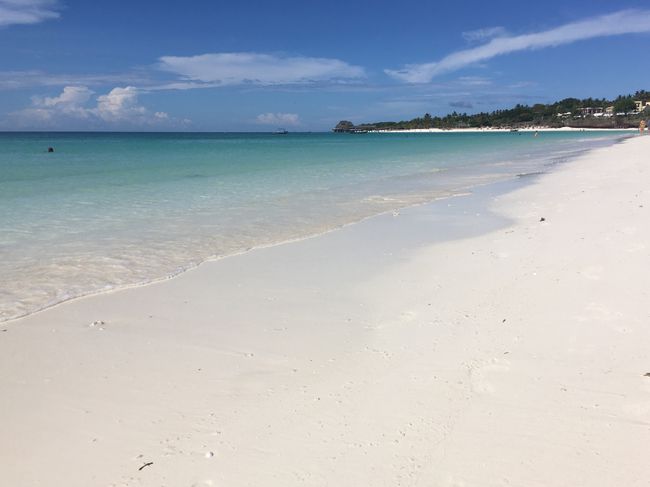
旅行报告坦桑尼亚
